- Home
- Health Condition
Medicine For Cartilage Regeneration
Medicine For Cartilage Regeneration
- Total Items (461)
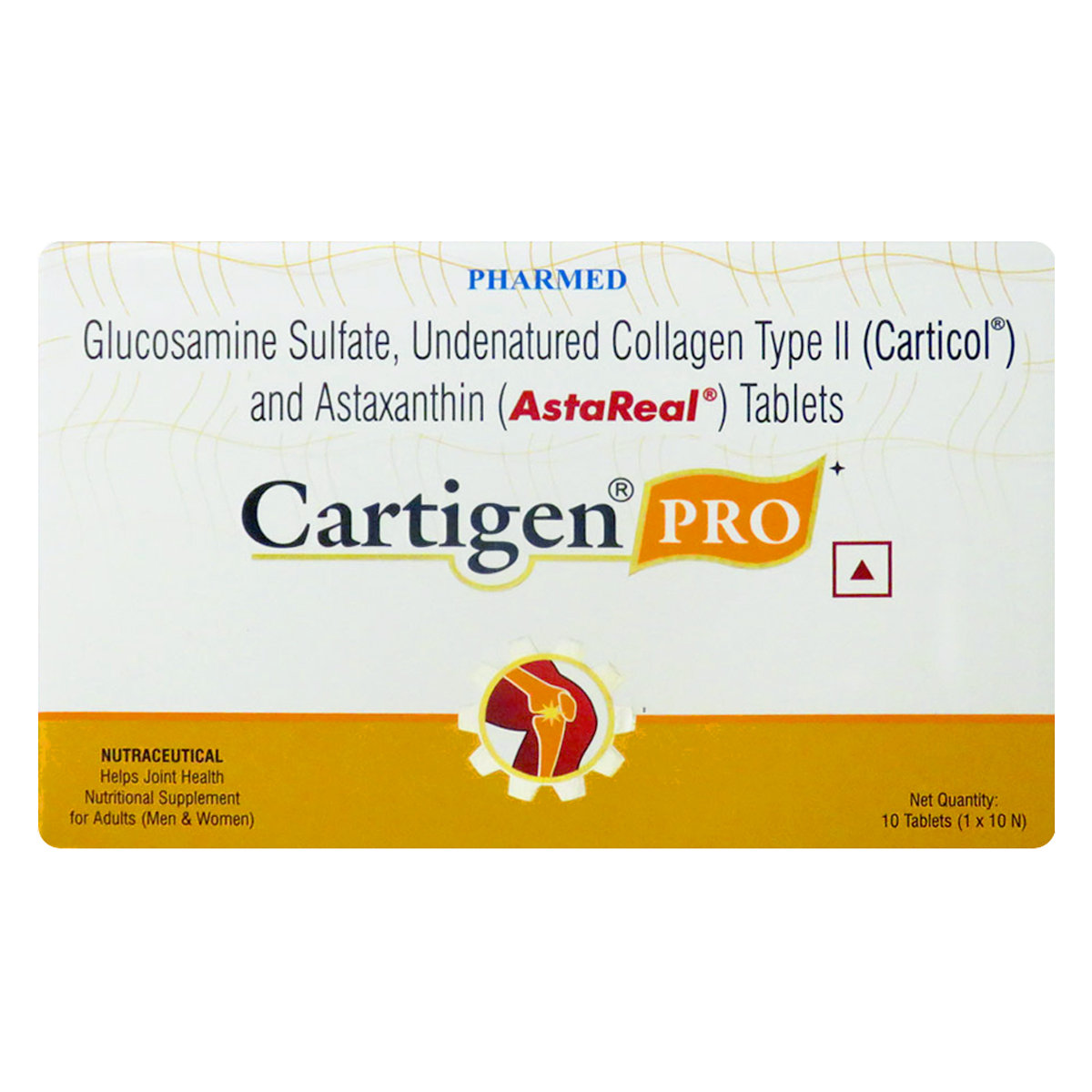
Cartigen Pro Tablet 10's
₹656.60
MRP ₹729.50
10% off
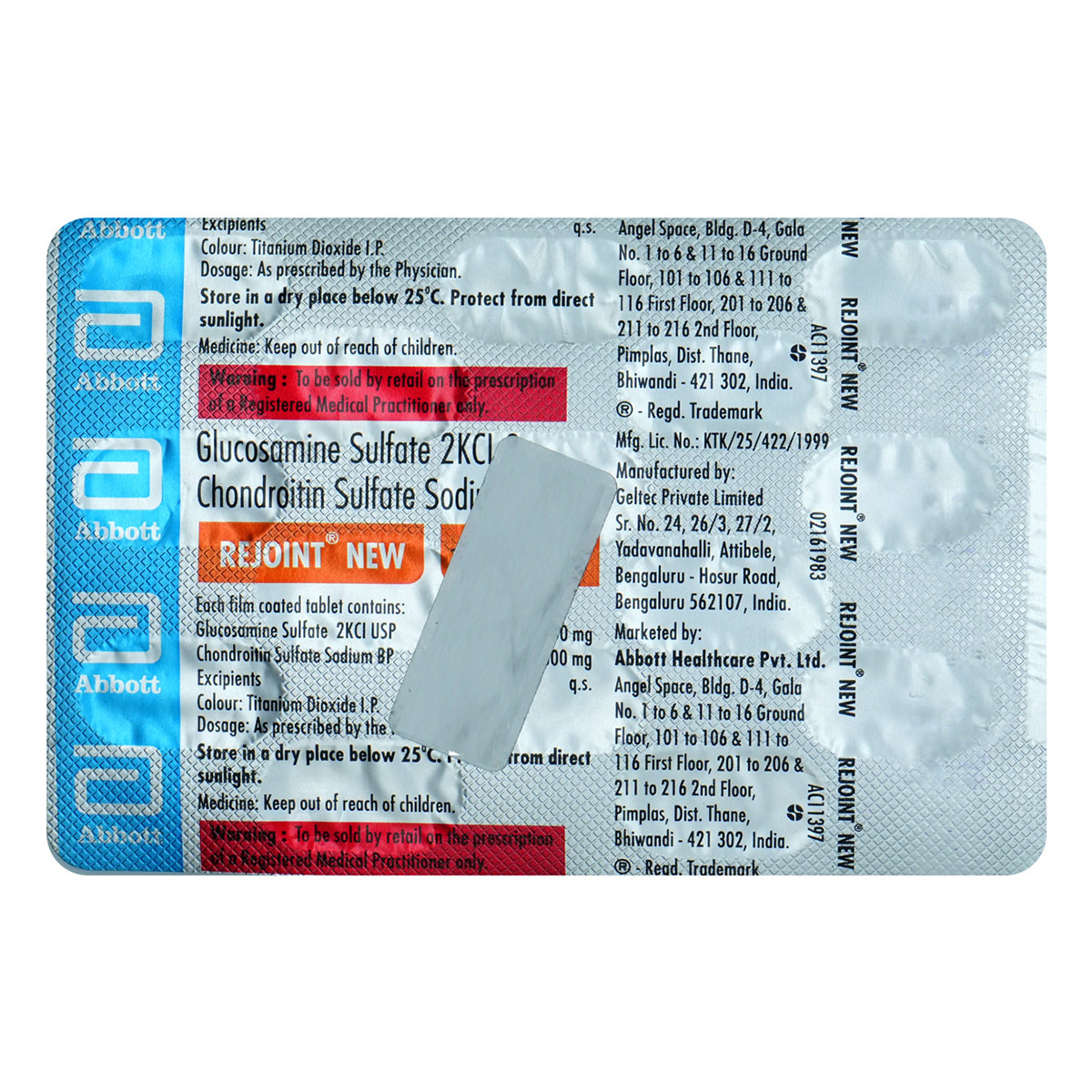
Rejoint New Tablet 15's
₹560.30
MRP ₹622.50
10% off
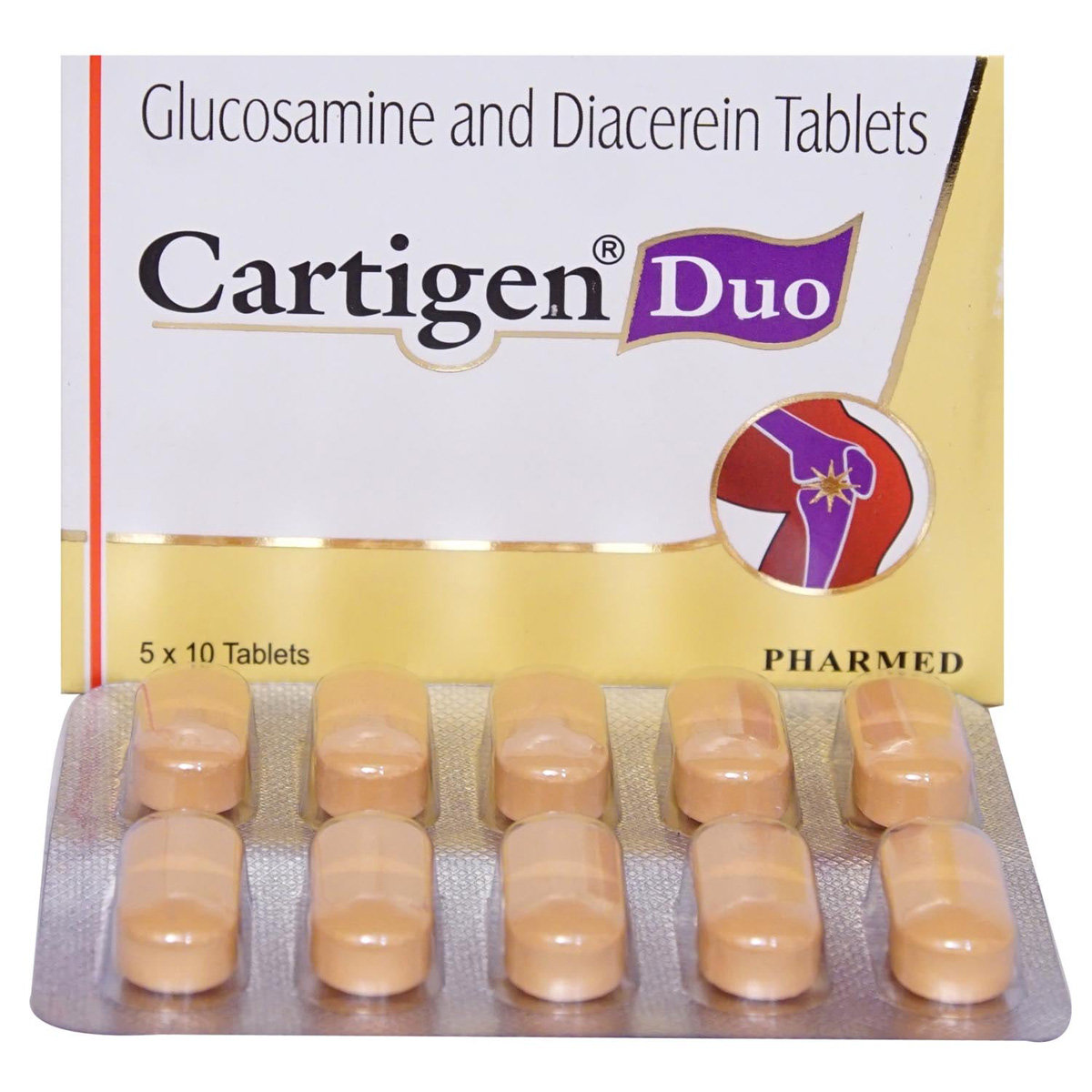 RX
RXCartigen Duo Tablet 10's
₹290.70
MRP ₹323
10% off
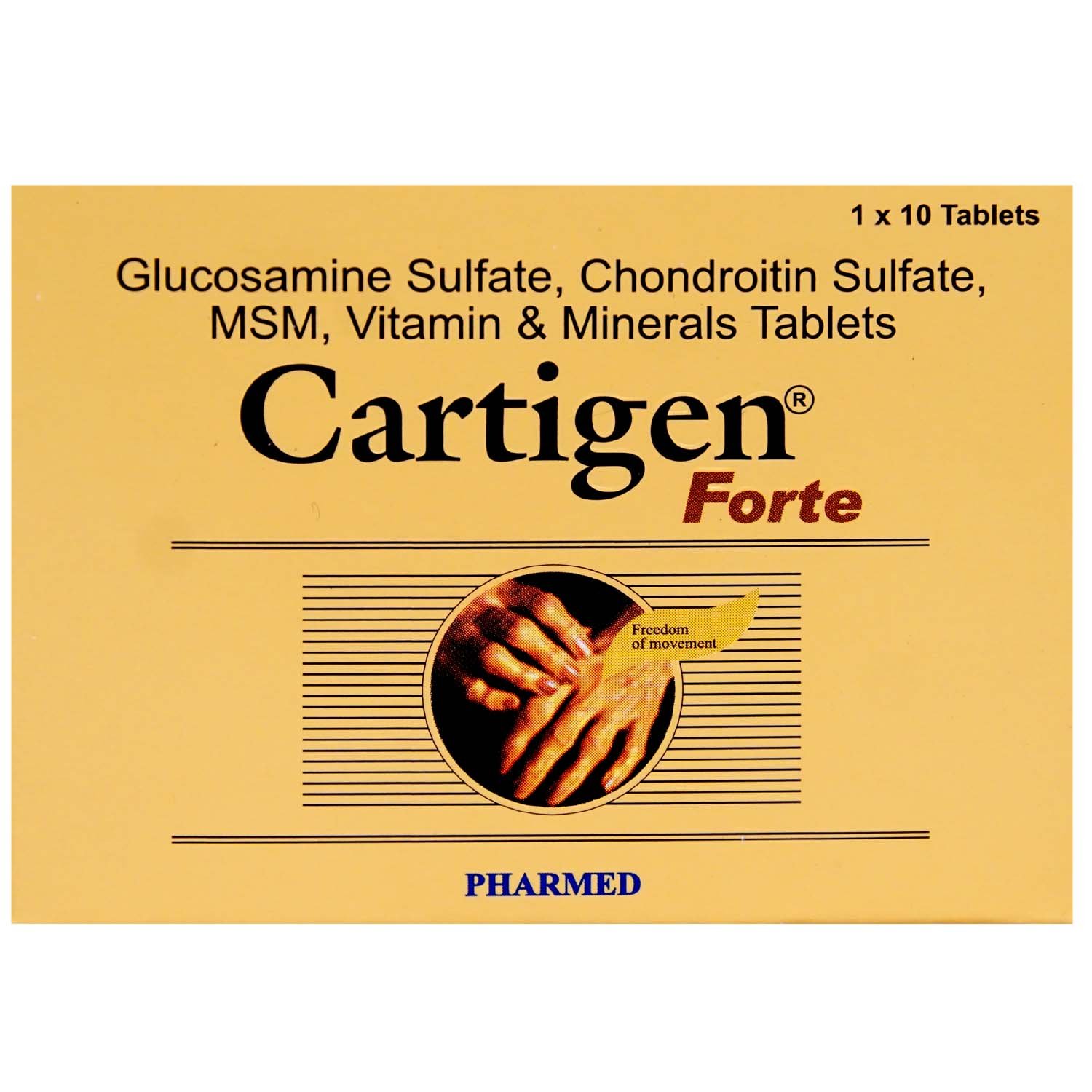
Cartigen Forte Tablet 10's
₹376.20
MRP ₹418
10% off
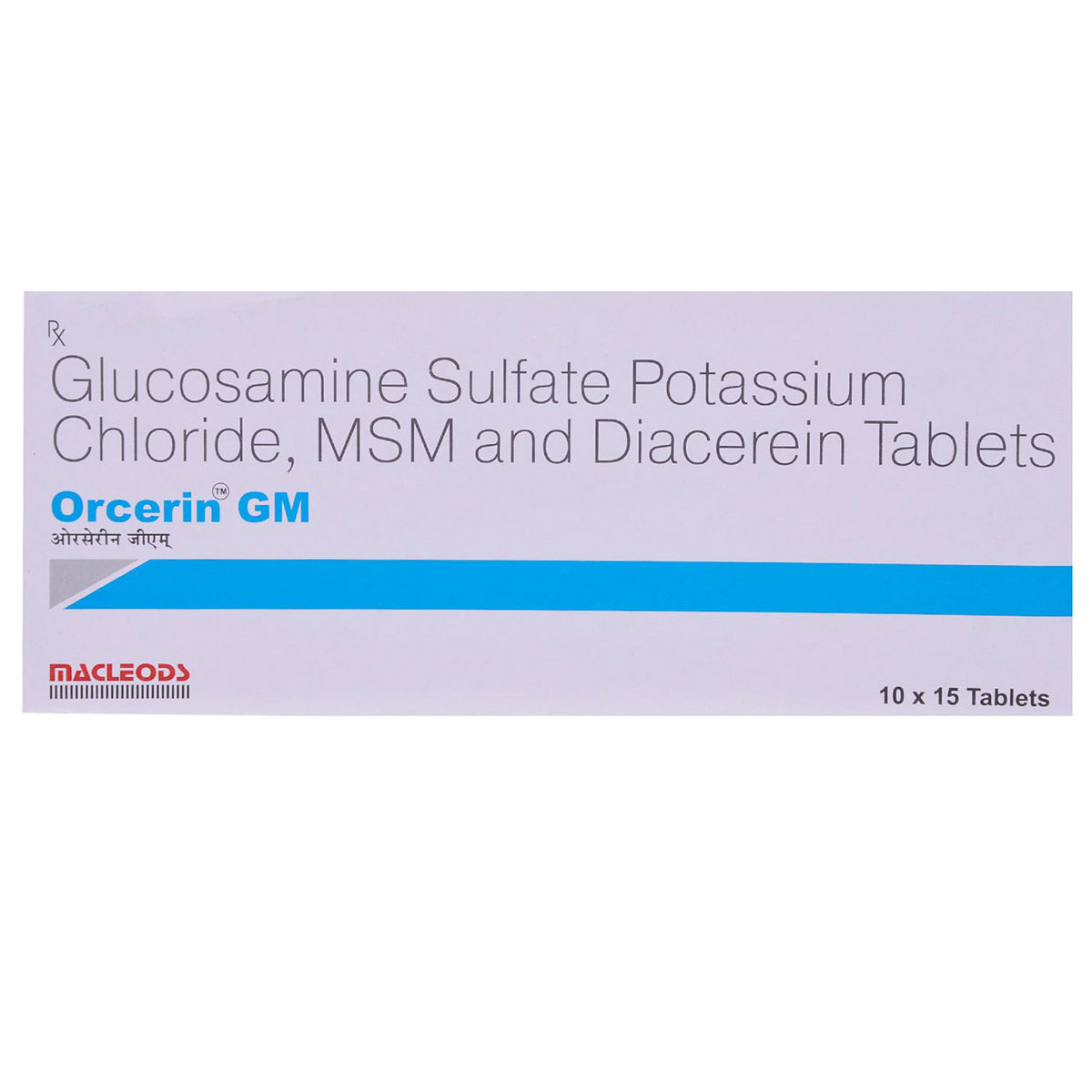 RX
RXOrcerin GM Tablet 15's
₹364.50
MRP ₹405
10% off
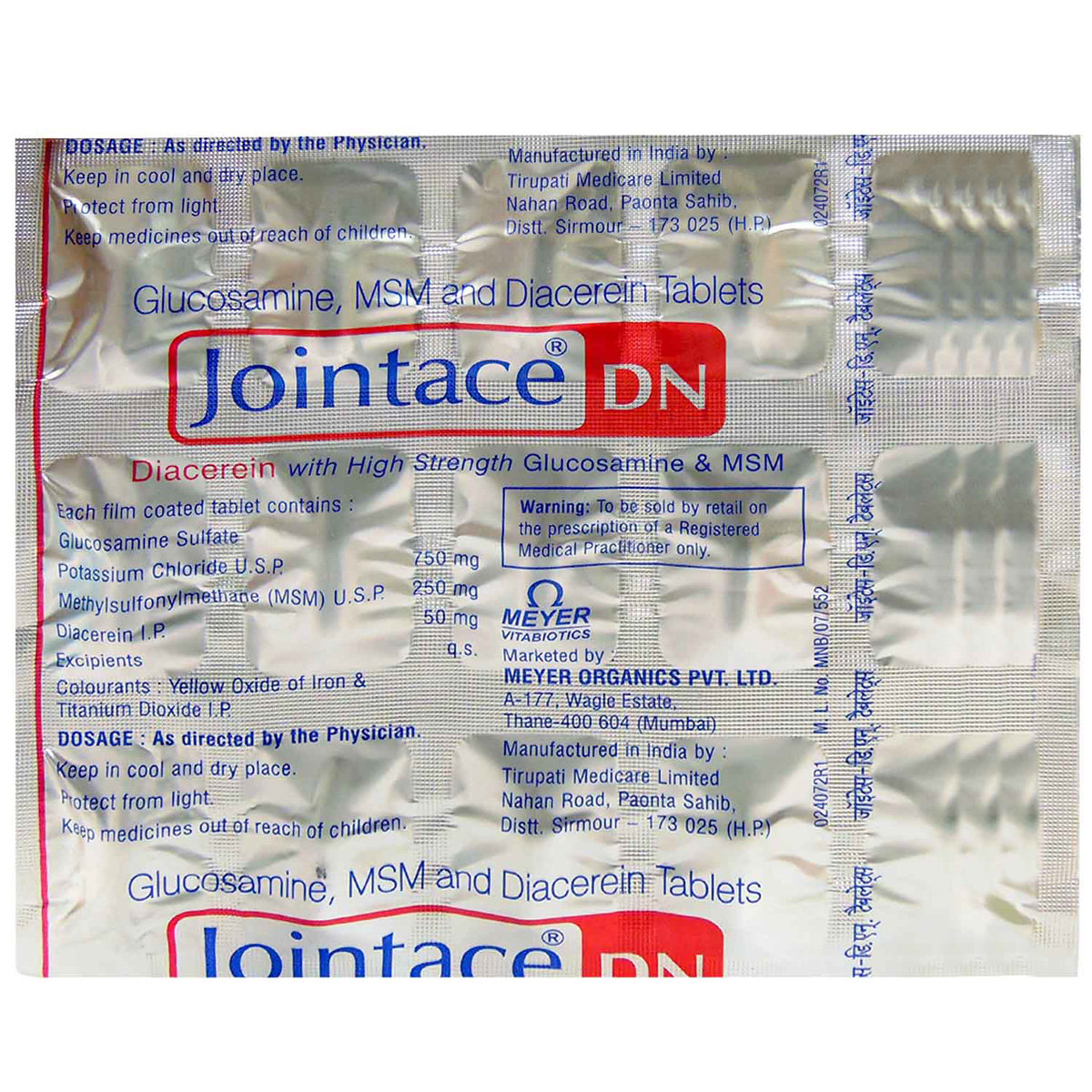 RX
RXJointace DN Tablet 15's
₹354.20
MRP ₹393.50
10% off
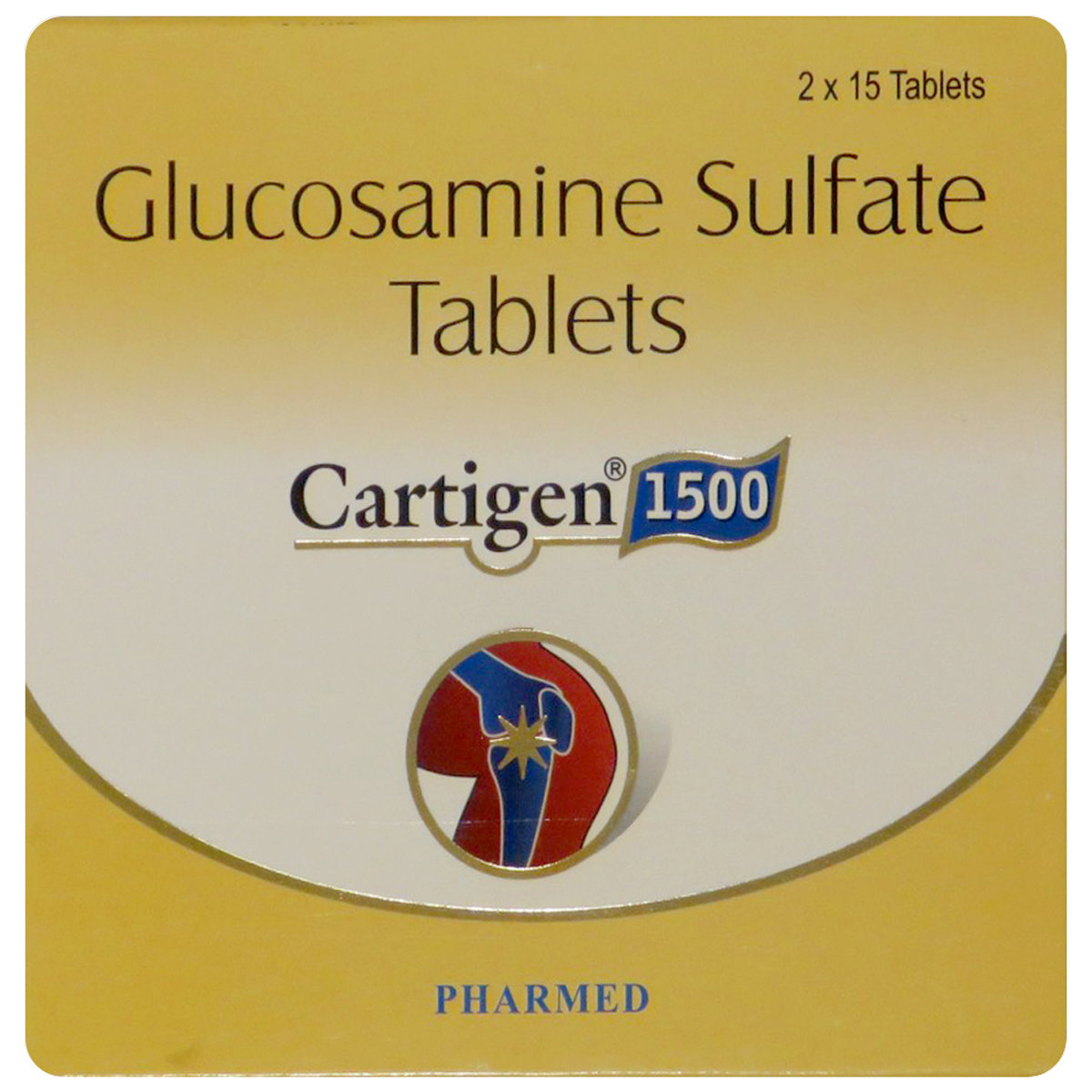
Cartigen 1500 mg Tablet 15's
₹286.70
MRP ₹318.50
10% off

Mega Freeflex Tablet 10's
₹481.50
MRP ₹535
10% off

Freeflex Forte 15 Softlets
₹868.20
MRP ₹964.50
10% off
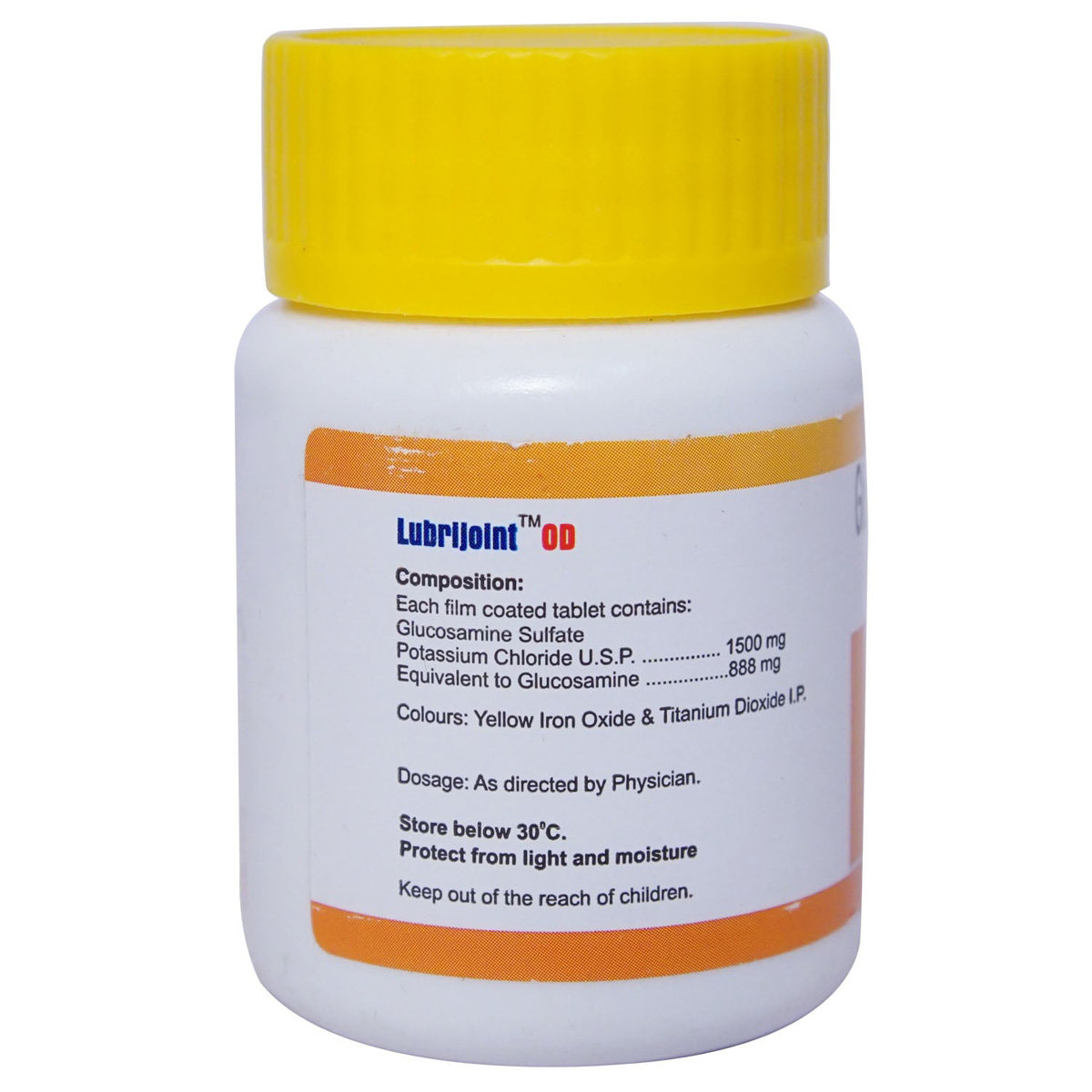
Lubrijoint OD Tablet 30's
₹506.30
MRP ₹562.50
10% off
 RX
RXCartigen DN Tablet 10's
₹233.60
MRP ₹259.50
10% off
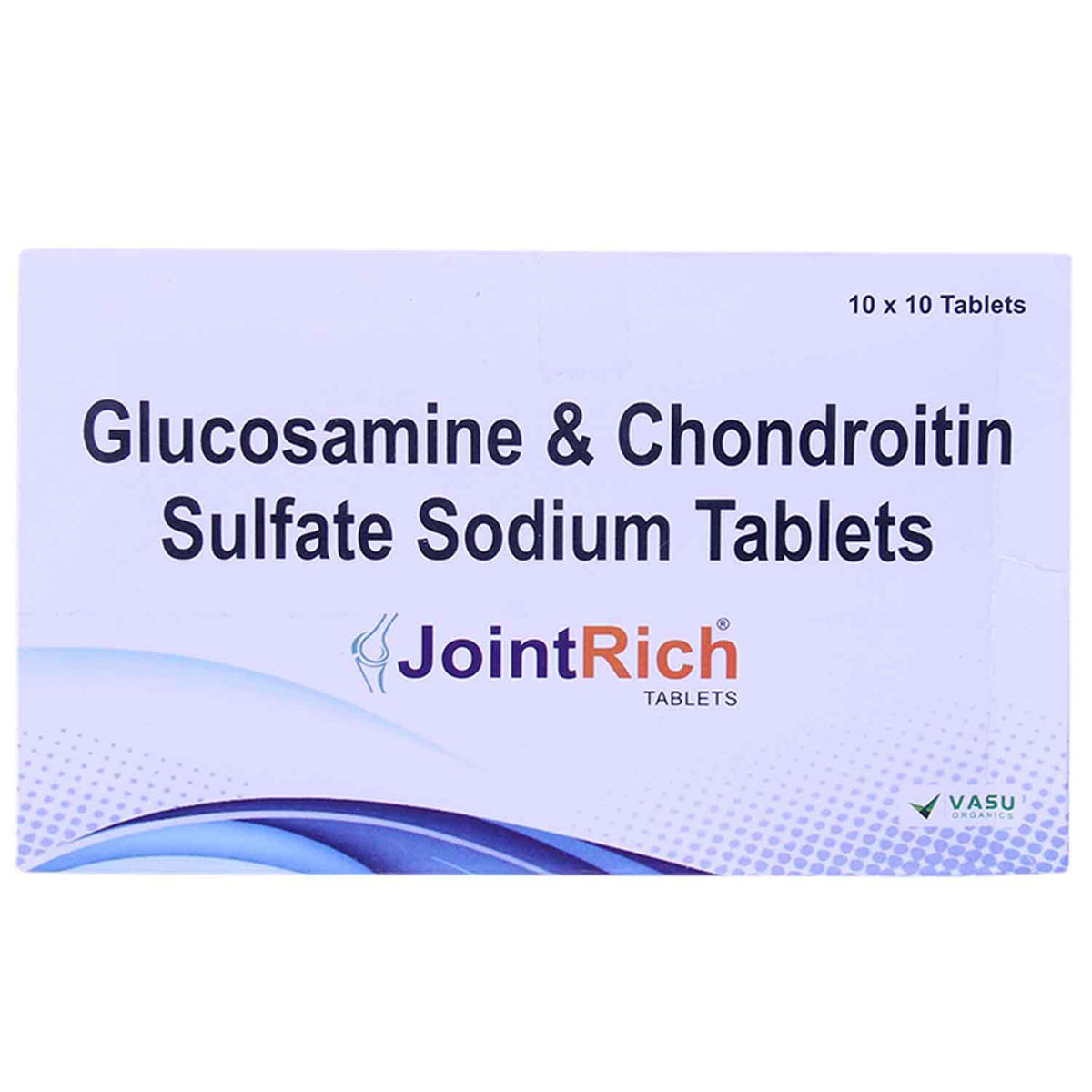
Joint Rich Tablet 10's
₹304.20
MRP ₹338
10% off

Jointskel Sugar Free Tangy Orange Sachet 12.5 gm
₹87.80
MRP ₹97.50
10% off

Trioflex Tablet 10's
₹279.90
MRP ₹311
10% off
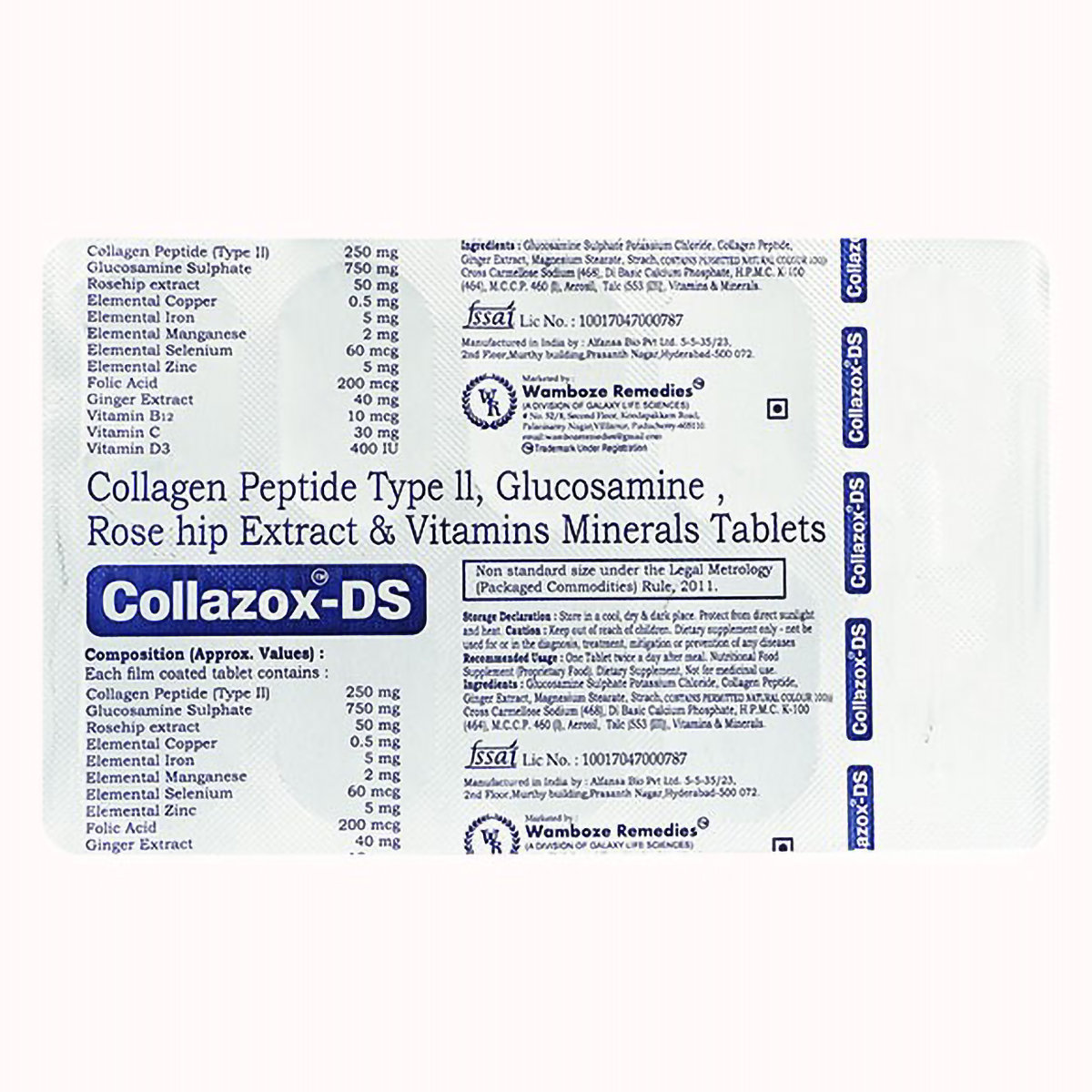
Collazox-DS Tablet 10's
₹272.30
MRP ₹302.50
10% off
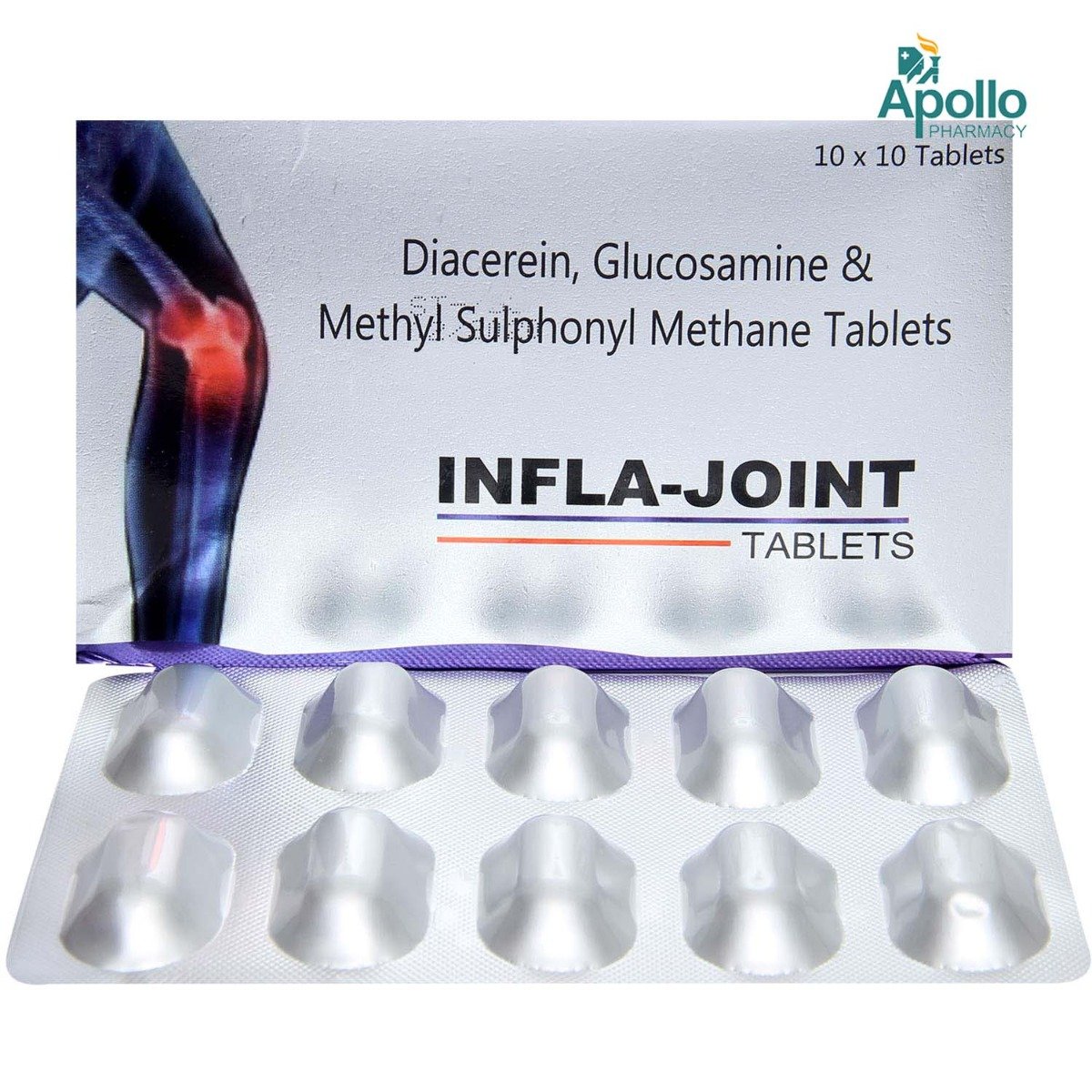 RX
RXInfla-Joint Tablet 10's
₹210.60
MRP ₹234
10% off
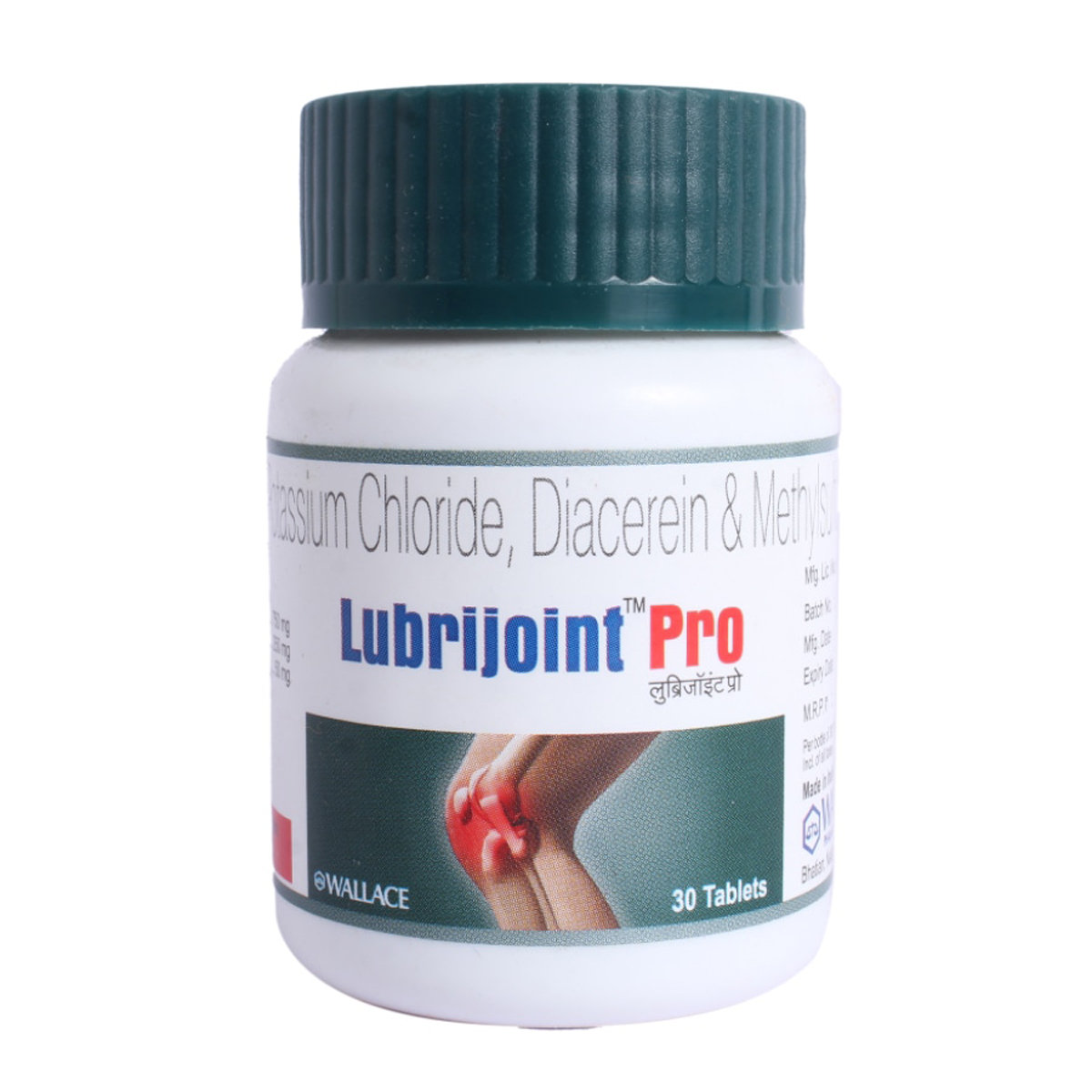 RX
RXLubrijoint Pro Tablet 30's
₹749.70
MRP ₹833
10% off
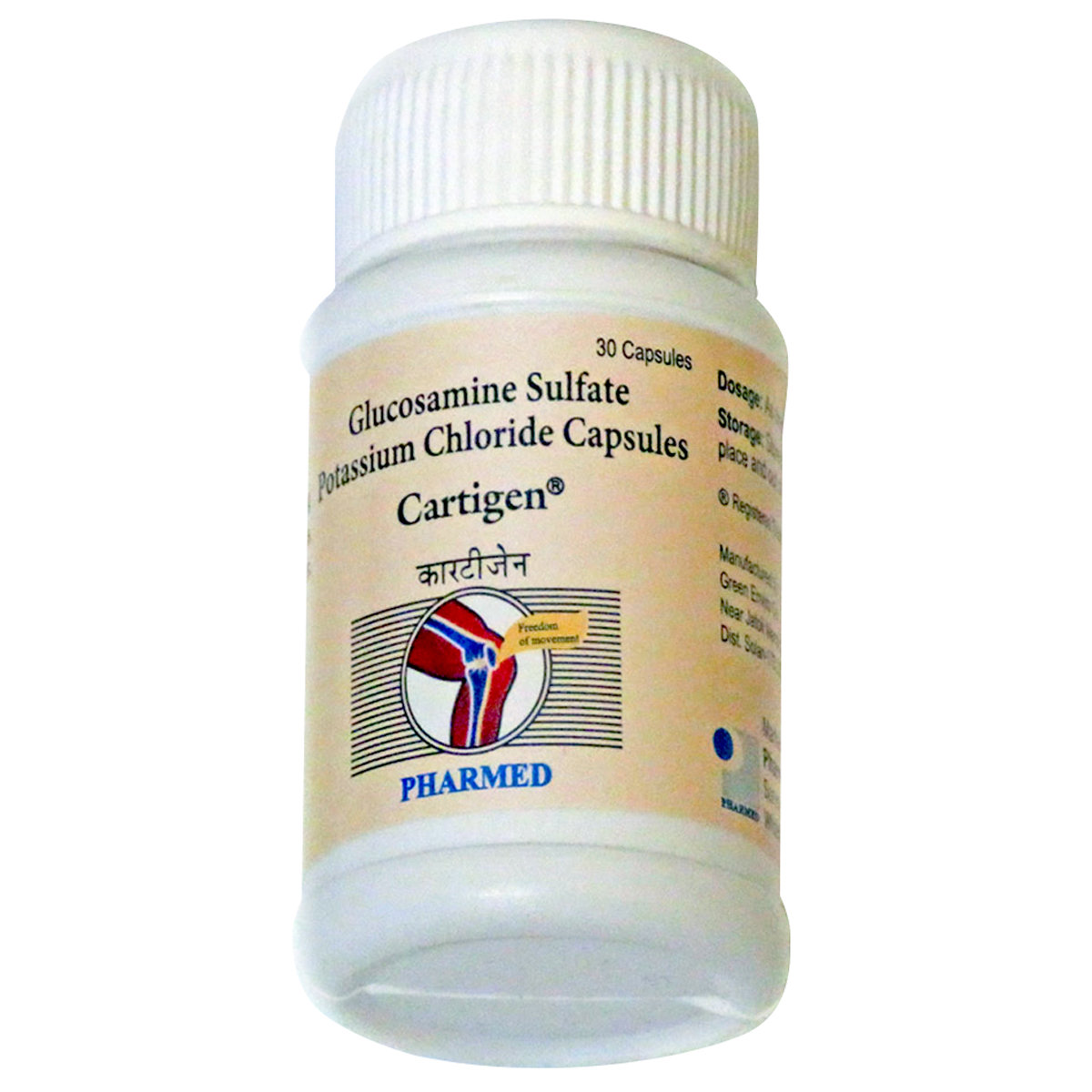
Cartigen Capsule 30's
₹438.80
MRP ₹487.50
10% off
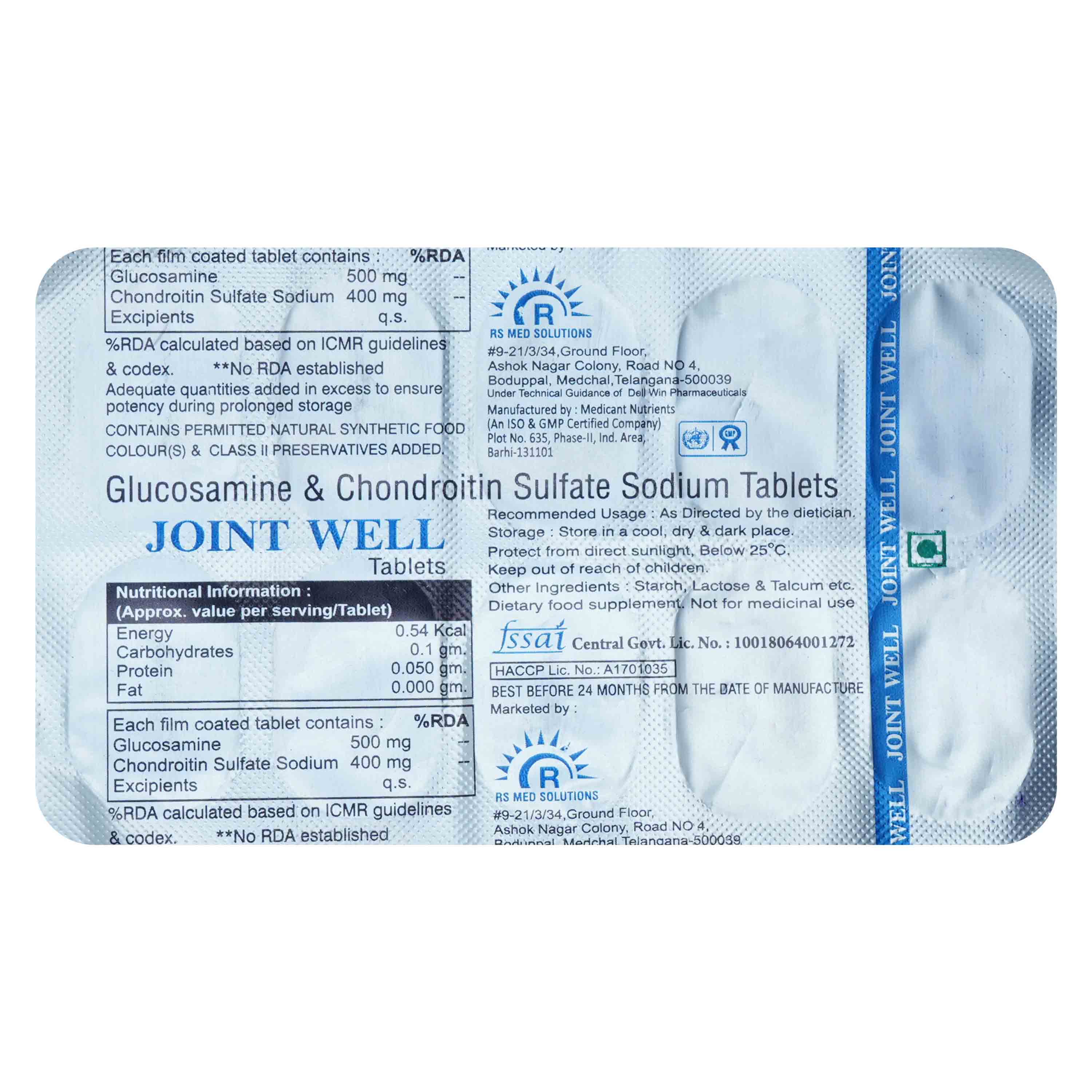
Joint Well Tablet 10's
₹243
MRP ₹270
10% off
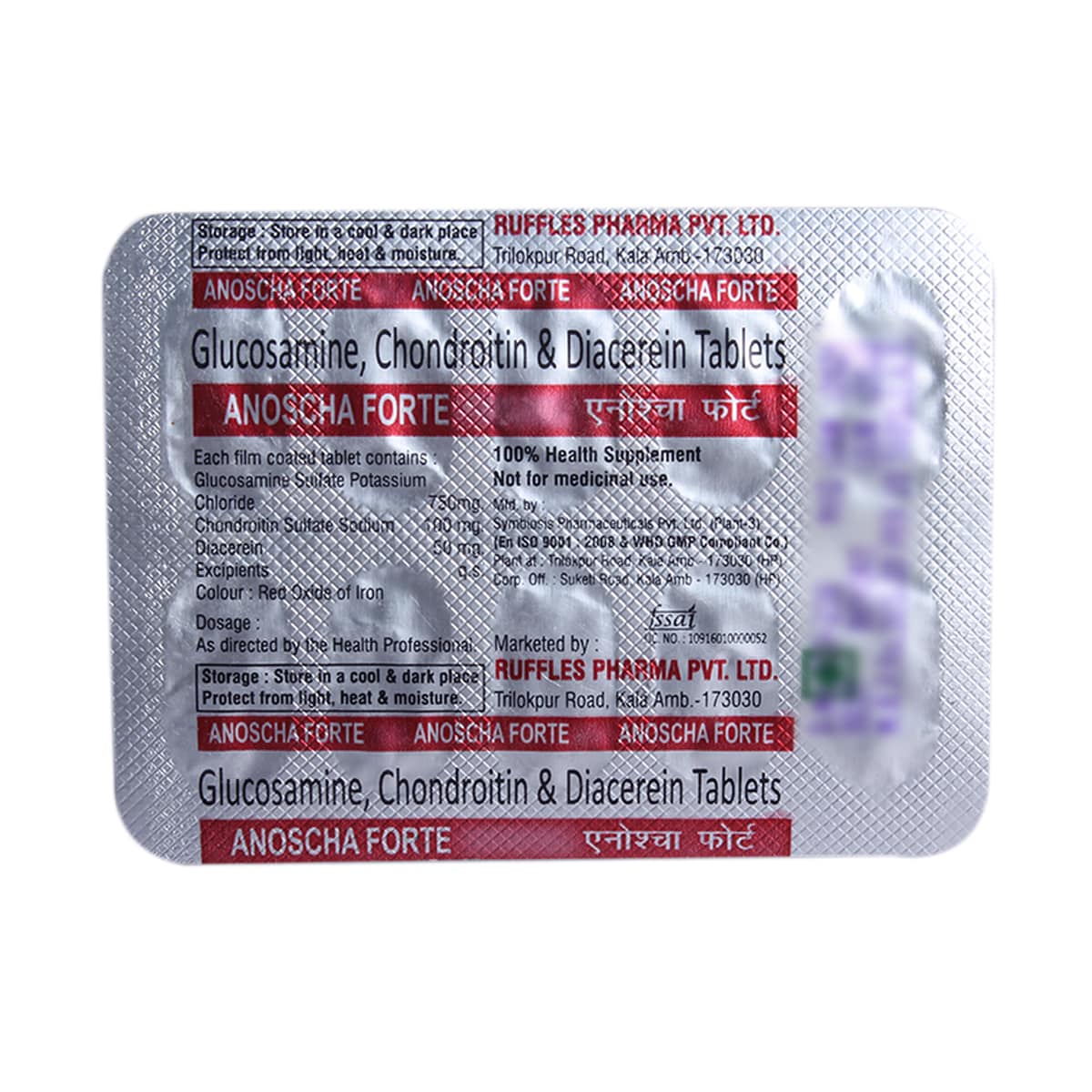 RX
RXAnoscha Forte Tablet 10's
₹286.70
MRP ₹318.50
10% off
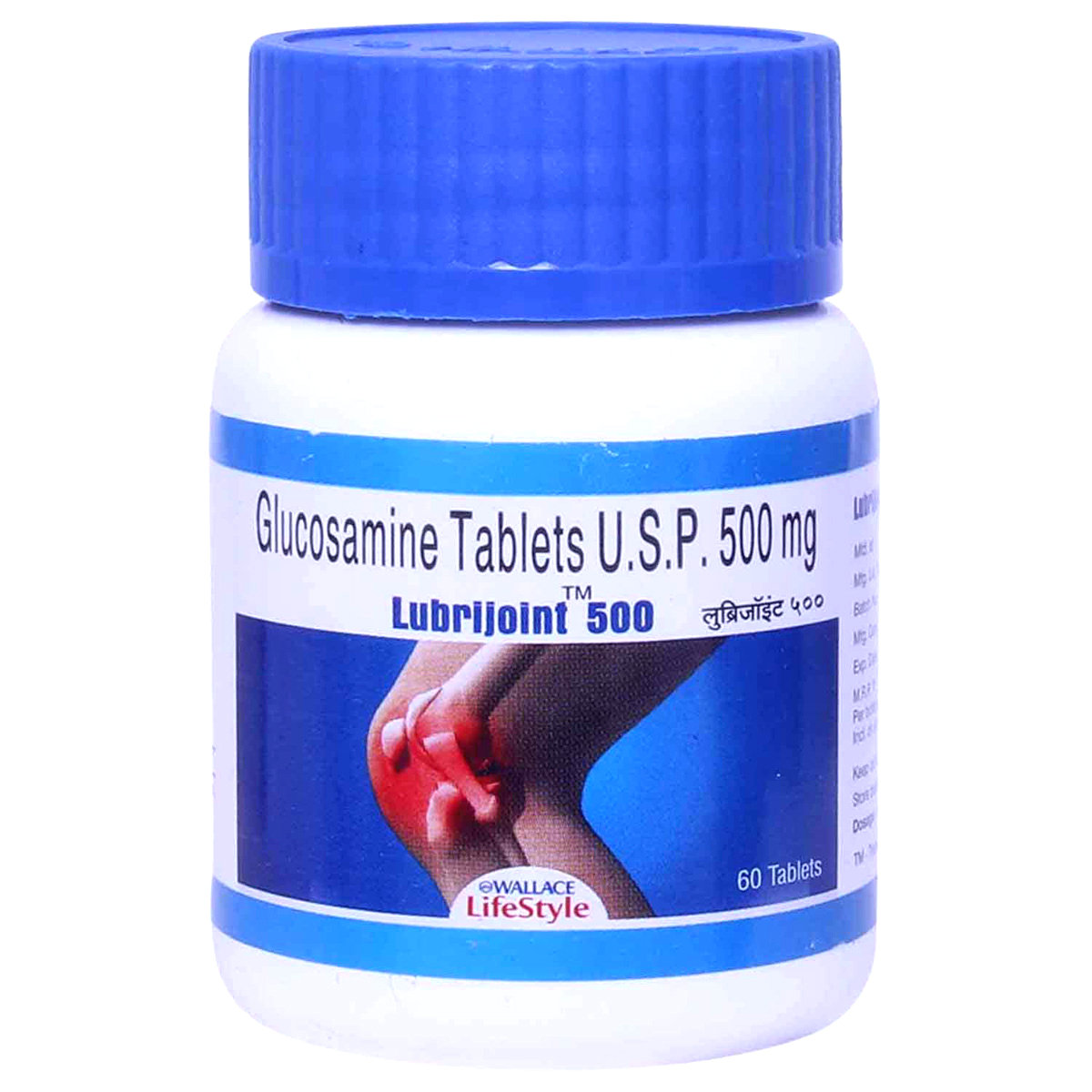
Lubrijoint 500 Tablet 60's
₹462.20
MRP ₹513.50
10% off
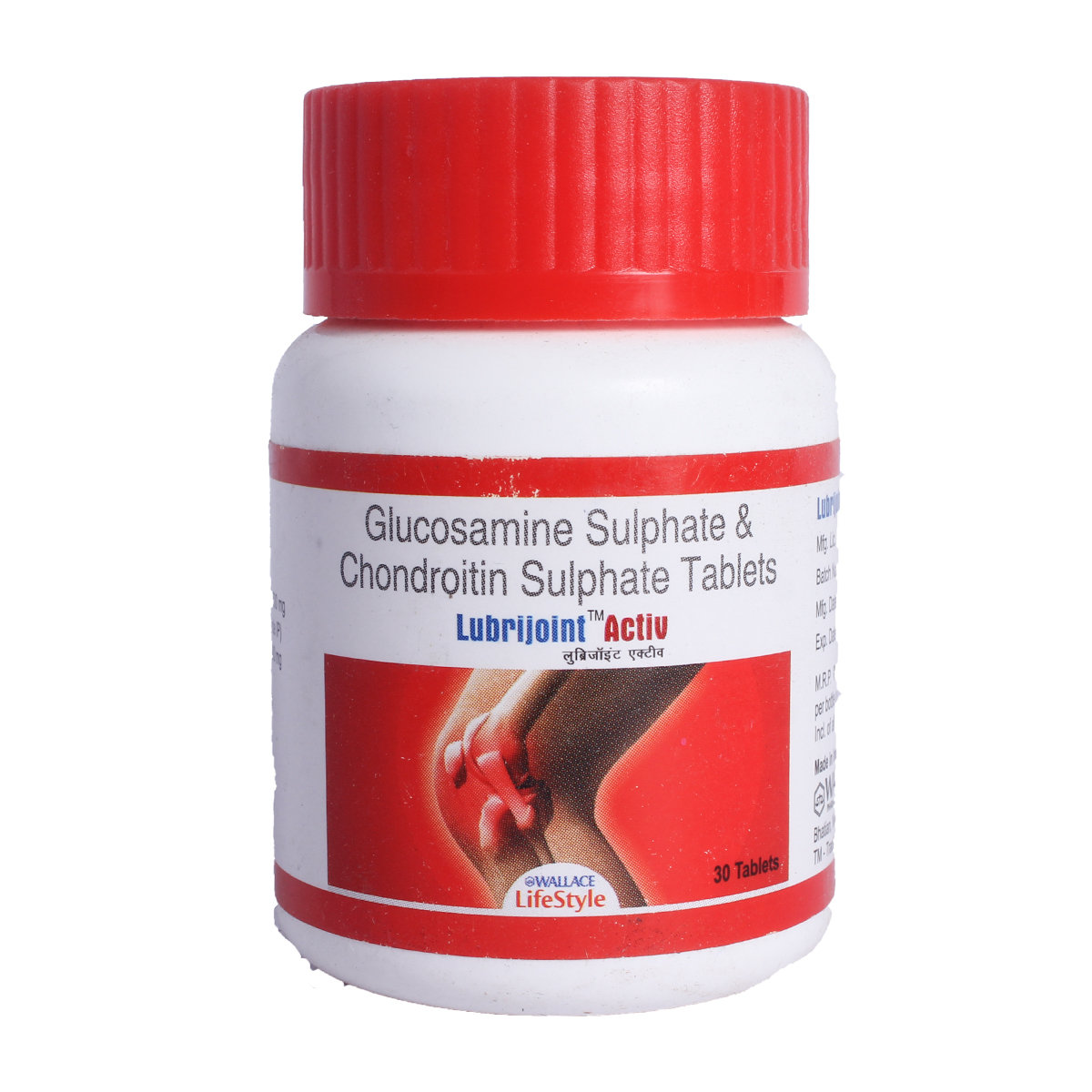
Lubrijoint Activ Tablet 30's
₹738.90
MRP ₹821
10% off
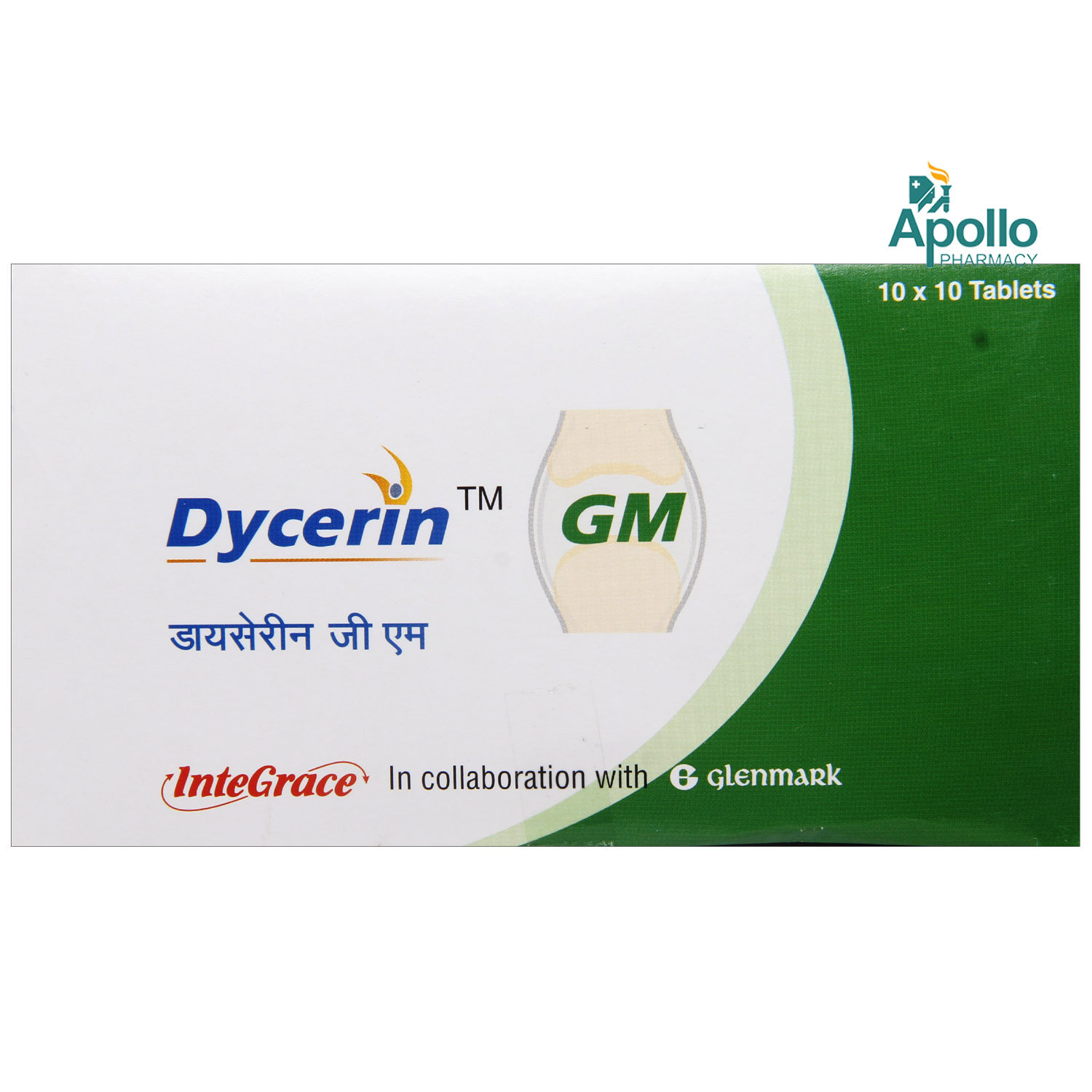 RX
RXDycerin GM Tablet 10's
₹369.50
MRP ₹410.50
10% off
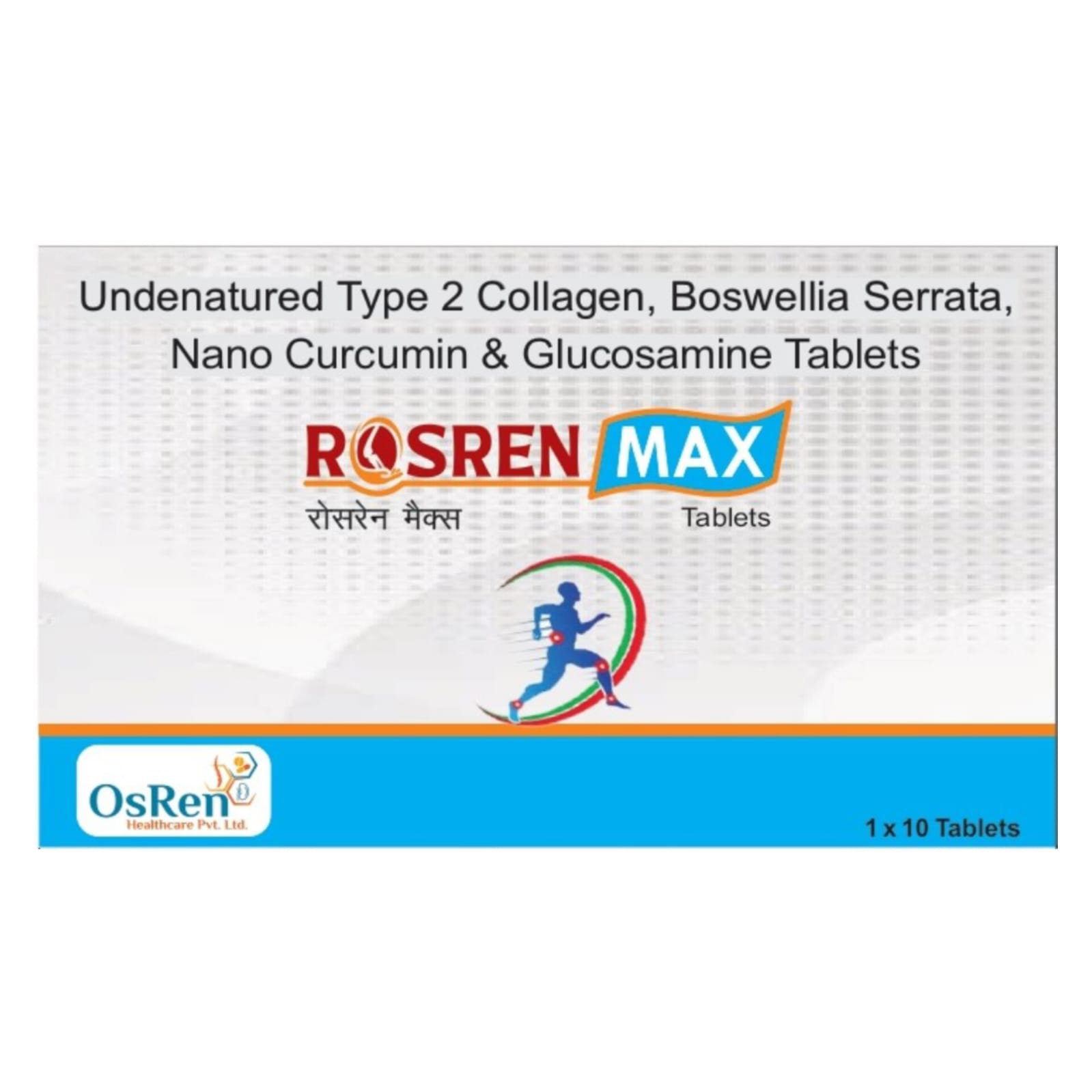
Rosren Max Tablet 10's
₹764.60
MRP ₹849.50
10% off
Medicine for Cartilage Regeneration
Cartilage damage can occur due to various reasons, including ageing, trauma, or conditions like osteoarthritis. Cartilage plays a crucial role in the body by providing cushioning between bones and facilitating smooth joint movement. When cartilage wears down or is damaged, it can lead to pain, stiffness, and limited mobility. While cartilage does not regenerate easily on its own, there are medical treatments available that aim to promote cartilage repair or regeneration. In this guide, we’ll discuss the types of medicines used for cartilage regeneration, their benefits, and how to use them effectively.
Types of Medicine for Cartilage Regeneration
There are several medications that aim to promote cartilage regeneration or protect existing cartilage. These medicines work through various mechanisms, such as stimulating cell growth, reducing inflammation, or protecting the cartilage from further damage. Below are the primary types of medicines commonly prescribed for cartilage regeneration:
1. Chondroprotective Agents
Chondroprotective agents help protect existing cartilage and promote its repair by supporting the production of compounds that are vital for cartilage health. These agents are often used as supplements or treatments to slow cartilage degeneration and support its natural regeneration. Common examples of these substances include:
- Glucosamine sulfate
- Glucosamine hydrochloride
- Chondroitin sulfate
These compounds are naturally occurring in cartilage and may help with pain relief and improve joint function.
2. Hyaluronic Acid Injections
Hyaluronic acid is a naturally occurring substance found in the synovial fluid of joints, where it acts as a lubricant and shock absorber. Injections of hyaluronic acid, often referred to as viscosupplementation, are used to improve joint lubrication, reduce pain, and protect cartilage from further wear and tear. This treatment is particularly beneficial for people with osteoarthritis or other degenerative joint conditions.
3. Platelet-Rich Plasma (PRP) Therapy
PRP Therapy is a treatment that uses a small sample of your own blood. First, the blood is processed to concentrate platelets and growth factors, which are the components that help with healing. This enriched plasma is then injected back into the damaged joint. The platelets and growth factors in the plasma help stimulate tissue repair, promote cartilage healing, and reduce inflammation. PRP therapy has become popular for treating joint injuries and conditions like osteoarthritis, where cartilage degeneration occurs.
4. Stem Cell Therapy
Stem Cell Therapy involves using stem cells, usually taken from your bone marrow or fat tissue, to help regenerate damaged cartilage. Stem cells have a unique ability to transform into different types of cells, including those that produce cartilage, helping repair damaged tissue. While this treatment shows great promise for people with severe cartilage damage, it is still being researched and developed to ensure its effectiveness and safety.
5. Tissue Engineering Products
Tissue Engineering is a technique that uses special materials, called scaffolds, combined with cells or growth factors to help repair or replace damaged cartilage. Think of it like a structure that supports the growth of new cartilage, helping to rebuild areas where it’s been lost due to injury or wear and tear. While this technology is still developing, it is often used alongside other treatments like stem cell therapy or PRP to speed up cartilage healing and improve joint function.
6. Anti-Inflammatory Medications
While not directly involved in cartilage regeneration, anti-inflammatory medications are crucial for managing the symptoms associated with cartilage damage. By reducing pain and inflammation, these treatments help create a better environment for healing and allow individuals to engage in rehabilitation exercises that support cartilage health. Common anti-inflammatory medications include:
- Nonsteroidal anti-inflammatory drugs (NSAIDs) (e.g., ibuprofen, naproxen)
- Corticosteroid injections (e.g., prednisone, methylprednisolone)
These medications help alleviate the pain and swelling associated with joint conditions, enabling patients to undergo physical therapy that can aid cartilage regeneration.
Benefits of Using Medicine for Cartilage Regeneration
Using medicine for cartilage regeneration offers several key benefits, depending on the specific treatment and the severity of cartilage damage. Here are some of the primary benefits:
- Promotes Cartilage Repair and Regeneration: Treatments like glucosamine, stem cell therapy, and PRP injections stimulate the regeneration of damaged cartilage, helping to restore joint function and alleviate pain.
- Reduces Pain and Inflammation: Medications like NSAIDs, corticosteroids, and hyaluronic acid injections can reduce pain and inflammation in joints, improving mobility and quality of life for individuals with cartilage damage or osteoarthritis.
- Improves Joint Lubrication: Hyaluronic acid injections help improve joint lubrication, which reduces friction between bones and provides cushioning, potentially preventing further cartilage damage and easing movement.
- Supports Joint Function: By promoting cartilage repair and reducing inflammation, these treatments help to improve overall joint function, making it easier for individuals to engage in daily activities without pain or stiffness.
- Enhances Healing in Chronic Conditions: For individuals with conditions like osteoarthritis, these treatments can slow the progression of the disease and provide long-term relief, reducing the need for invasive procedures like joint replacement surgery.
- Prevents Further Cartilage Degeneration: Some treatments, like glucosamine and chondroitin, help prevent further breakdown of existing cartilage, protecting the joint from further damage.
Dosage & Usage Instructions of Cartilage Regeneration Medicines
The appropriate dosage and usage instructions for cartilage regeneration medicines depend on the specific treatment being used. Below are some general guidelines for commonly prescribed treatments:
- Chondroprotective Agents: These are typically taken orally as daily supplements. Be sure to follow the specific dosage instructions provided by your healthcare provider for the best results.
- Hyaluronic Acid Injections: Administered by a healthcare professional, usually in a series of 3-5 injections spread over several weeks. The exact number of injections may vary based on individual needs and the severity of the condition.
- PRP Therapy: PRP therapy is performed in a clinical setting. The frequency of sessions depends on the severity of your condition and your doctor’s recommendation, typically requiring multiple treatments.
- Stem Cell Therapy: This therapy may involve a single session or multiple sessions, depending on the severity of cartilage damage. It must be done under the supervision of a qualified healthcare professional.
- Anti-Inflammatory Medications: The dosage of anti-inflammatory drugs varies depending on the medication and your condition. Always follow your doctor’s prescription to avoid potential side effects.
Caution Points:
- Consult a Specialist: Always seek professional medical advice before beginning any new treatment to ensure it’s suitable for your condition.
- Avoid Self-Medication: Do not attempt to self-medicate, as improper use of treatments can worsen the condition or cause unwanted side effects.
- Regular Follow-ups: Ongoing follow-up appointments with your doctor are crucial to monitor progress and adjust the treatment as needed.
Where to Buy Medicine for Cartilage Regeneration Online?
Struggling with joint pain or cartilage damage? Apollo 24|7 offers fast and reliable delivery of medications for cartilage regeneration, including chondroprotective agents and hyaluronic acid solutions, directly to your doorstep in just 19 to 29 minutes. While advanced treatments like stem cell therapy or hyaluronic acid injections require in-person consultations, you can easily consult with a doctor through the Apollo 24|7 app to explore the best treatment options. With lab tests and expert advice also available, we provide comprehensive joint health solutions—all in one place.
Frequently asked questions
It is true that cartilage has very limited self-repair ability due to its lack of blood supply. External treatments like stem cell therapy, PRP (Platelet-Rich Plasma), and hyaluronic acid injections can indeed stimulate regeneration and reduce degeneration, but outcomes may vary between individuals.
It is generally accurate that supplements like glucosamine and chondroitin may take weeks or months to show effects. Treatments like PRP or hyaluronic acid injections can provide relief more quickly, typically within weeks, but actual cartilage regeneration may take longer and require ongoing monitoring by a healthcare professional.
Mild side effects such as gastrointestinal discomfort with supplements or localised swelling from injections are common. This is accurate, and consulting with a healthcare provider for personalised guidance is crucial to ensure safe treatment.
Stem cell therapy does show promise for cartilage regeneration in osteoarthritis by promoting new cartilage growth. However, it is still considered experimental in many cases, and not all patients may achieve significant benefits. Clinical studies and research continue to explore its long-term efficacy.
The statement is accurate. Hyaluronic acid injections are commonly administered in a series of 3-5 sessions, spaced about a week apart, and repeat treatments may be required depending on the severity of the damage and the patient’s response.
